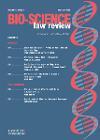Bio-Science Law Review - Volume 15 - Issue 6

ARTICLES
Brexit and Life Sciences Products: Authorisation and Exclusivity Rights
PAUL ENGLAND AND MATTHEW ROYLE Taylor Wessing LLP, London
On 23 June 2016, the people of Great Britain and Northern Ireland (together the United Kingdom (UK)) voted in a referendum for the UK to leave the European Union (EU); a process widely referred to as ‘Brexit’. The legal framework regulating the placing of life science products on the market in the UK – the marketing authorisation (MA),data exclusivity rights and market exclusivity rights applying to medicinal products and medical devices – is governed by EU law. As a result, the manner and degree in which Brexit finally happens – whether it is a ‘clean Brexit’, a ‘soft Brexit’, or something in between – will directly impact on these rights. This article examines the possible impact of Brexit on each of these elements in the regulatory framework.
The Patentability of Medical Treatments
MICHAEL BLAKENEY University of Western Australia and Queen Mary University of London
This article addresses the question of whether methods of medical treatment of human beings can be the subject of patent protection in Australia, the United Kingdom and the United States. It notes the distinction which has been drawn by courts in each jurisdiction between the patentability of medical and surgical procedures and of medical devices. The article notes the tension between the public interest in encouraging technical innovation and the competing public interest in ensuring unconstrained access by medical practitioners and their patients to new medical methods and processes.
The EU Commission Notice on Plants from Essentially Biological Processes. Problem Solved?
MICHAEL A. KOCK European Patent Attorney
The recent ‘Commission Notice on certain Articles of Directive 98/44/EC of the European Parliament and of the Council on the legal protection of biotechnological inventions’ concludes that plants derived from essentially biological processes are intended to be excluded from patentability. This article analyses the notice and its interrelation with the decisions of the European Patent Office’s Enlarged Board of Appeal in Tomato/Broccoli I and II. The radically different definition of ‘essentially biological processes’ rules out an easy adaption of the notice by the European Patent Office. It also emphasises the need to re-align the EPC with the Directive 98/44/EC, which may require a revision of the Broccoli/Tomato I decision.
The EU Trade Secrets Directive: a Case of Form over Substance
JOHN HULL Consultant Farrer & Co, Visiting Professorial Fellow Queen Mary, University of London
A steady stream of cases and reports show clearly that business faces a serious threat from industrial espionage or, more usually, from insiders, determined to take advantage of their employer’s trade secrets or confidential information. Will the recently introduced Trade Secrets Directive be effective in combating this serious threat to business security? This article examines the Directive and considers whether it is more about form than substance, and if so whether this heralds repeated references to the CJEU for guidance on its interpretation.
CASE COMMENTS
The Latest Case on SPCs: the CJEU Rules in Favour of Chaos
MIKE SNODIN Park Grove IP
This comment discusses the CJEU’s judgment in the latest case relating to SPCs, which judgment will not only be hugely disappointing for innovators but which also leaves unanswered a number of important questions relating to issues of legal certainty.
The UN Leads the Way on Antimicrobial Resistance
ASAWARI CHURI Pinsent Masons LLP
In September 2016, the United Nations General Assembly held a high level meeting to address the latest threat to humanity. If left unchecked, antimicrobial resistance is predicted to cause a public health disaster on a global scale. All 193 UN member states have signed a declaration pledging to come together to combat the problem. This report looks at the key points of the declaration.
